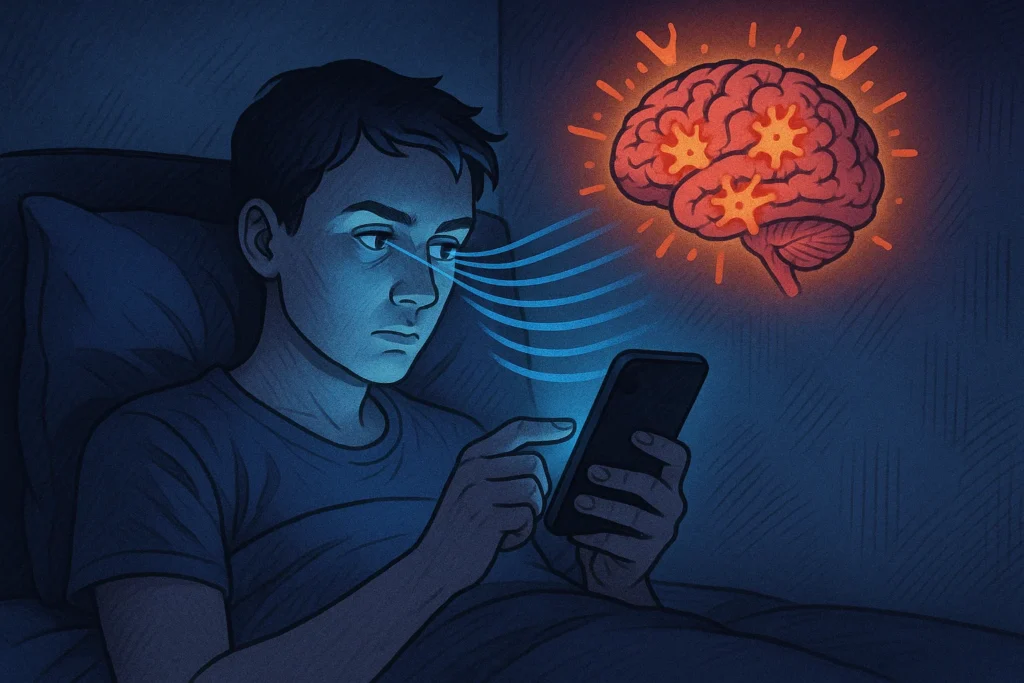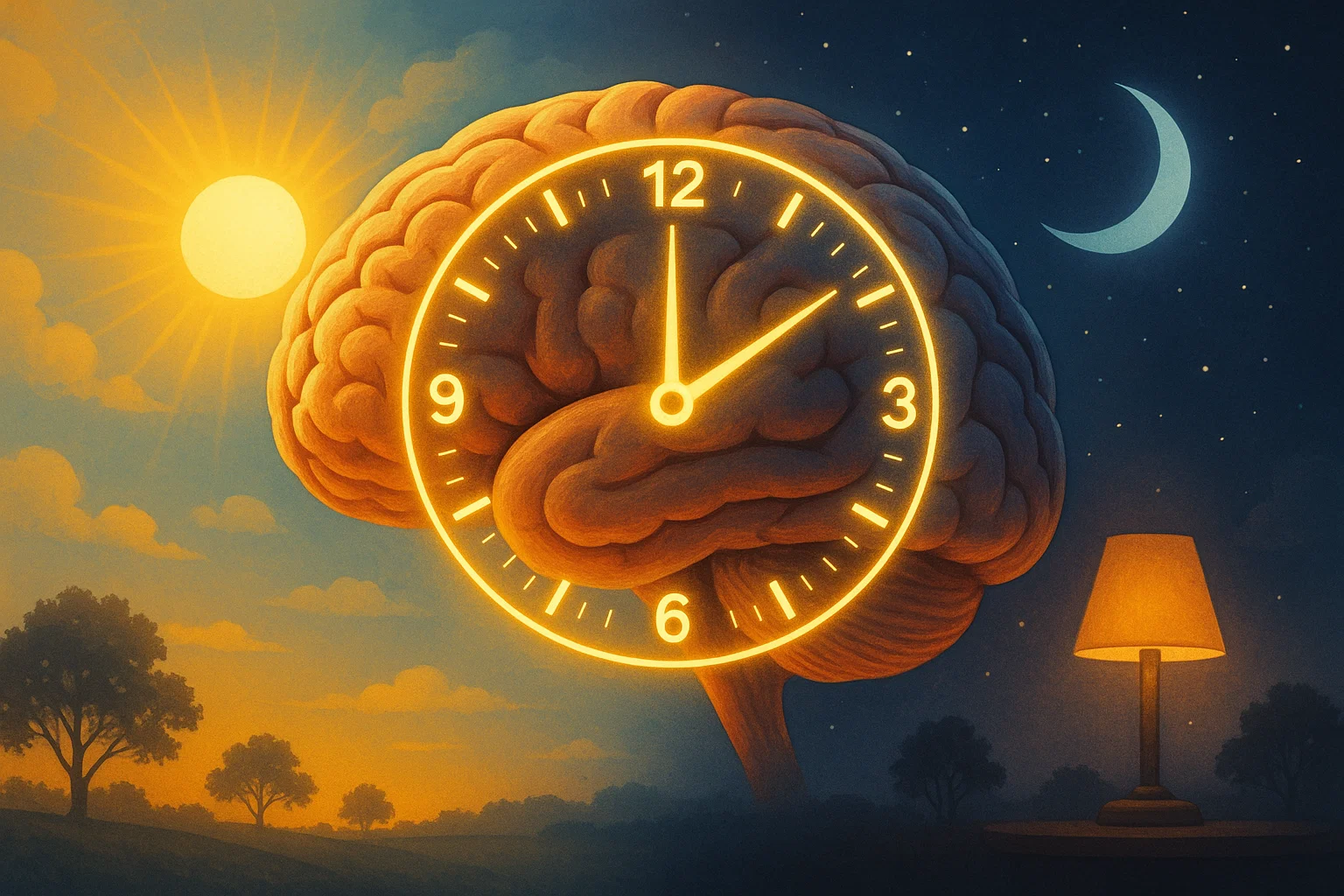Have you ever had an all-nighter then been a zombie the next day? Just think of that fog persisting, which makes an impact on your mood and immune system, not to mention brain inflammation. That is the world that neuroscientist Randy J. Nelson plunges into. In an eye-opening Genomic Press Interview, published July 8, 2025 in Brain Medicine, Nelson recounts his path in life to becoming an expert in circadian clocks and how our internal clocks dictate our health, as well as how our modern way of life interferes with our daily cycles.
Hailing originally from Detroit, but currently residing in Morgantown, West Virginia, Nelson did not quite make a direct line to science. His early life was punctuated by farm labor, third-shift turkey plant and even autopsy assistant. A chance visit to San Diego Zoo took him to UCSD, where he went first to a dual PhD in Psychology and Endocrinology–the first in the U.S.
Autopsies to Academia: Nelson Rises Unconventionally
Nelson has worked his way through Johns Hopkins, Ohio State, and to the current job at West Virginia University as first chair of Neuroscience. He has written almost 500 articles and more than a dozen books on rhythms, hormones, stress and immunity. He is fellow of various societies; elected fellow of several of them. He has mentored 25 PhDs and 16 post docs.
Pivotal moments? Leaving college to do autopsy work was a lesson in anatomy; a failure in a zoo job sent him to UCSD. Tony Deutsch and Irv Zucker were advisors who made him turn to hormones and behavior. His seminar with Beach sent Beach to hell.
Leadership? Serendipity again. He was recruited to Ohio State where he chaired Neuroscience in order to rescue the program. He is starting a network ab initio, as the co-chair of an NSF-Inspired network at WVU.
Circadian Rhythms: Body Clock of the Body
We are 24-hour-clock bodies; biologically we are in harmony with day-night. Interruptions, be it work shifts at night or an artificial light, are disastrous. Nelson has spent 15 years exploring this at his lab because these are related to immune troubles, brain inflammation, metabolism mishaps, sleep problems and mood variations such as depression and anxiety.
Why care? Be it at the genetic or behavioral level, rhythms make up the backbone of biology. But they are disregarded by clinical medicine. Nelson wants to alter that: trials of blocking ICU light after stroke/heart surgery, or blue light visors so night nurses can reset clocks, sleep, cognition, mood.
What may be skewed in labs is time-of-day, but little goes on the record. Nelson insists on it as a determinant factor.

Light at night: Modern Menace
Smartphones, LEDs-when we are always under the influence of light it tricks our brains. In the work of Nelson, it increases inflammation, changes metabolism, enhances the worsening of mood. Animals exposed are similar to experiences of humans who are shift workers: obesity, diabetes, mental health issues.
Solutions? Evening dim lights, blackout curtains, blue-light filters. Match food, physical activity to the natural rhythm. To shift workers: time lighting therapy.
Life-long Lessons in Science
Nelson does not attach importance only to being curious; it is strong inference, that is, set or testable hypotheses. Science is supposed to be a fun thing: his labs bowl, happy-hour, play softball. Not work-life balance but integration: the family shows up at conferences.
An erroneous-sounding success? Relocation to med schools was feared to impair integrative work, and allowed clinical translations.
Future? New experiments, time-of-day reporting. Effect: Healthier through respect of rhythms.
Today, why this matters.
Nelson writes at a time when we live in a 24/7 society. Sleep impoverishment is associated with Alzheimer, heart disease and cancer. Minor solutions, such as regular bedtimes, could change the lives.
To readers: Monitor sleep, reduce screens prior to bedtime. When struggling, one may check with the pros that may be rhythm related.
This inspiring moment in Nelson according to the story is that, serendipity combined with grit can bring breakthroughs. Discovery is fuelled by fun and rigor as he mentors.
Wider implications to Brain Health
Flawed rhythms are a cause of neuroinflammation, which is associated with anxiety, depression. The work conducted by Nelson transitions the foundational science to clinics and might bring about a revolution in treatments.
References and Resources:
Nelson, R. J. (2025). Disruption of circadian rhythms on brain function and health. Brain Medicine.
https://doi.org/10.61373/bm025k.0083
Genomic Press: Brain Medicine
National Sleep Foundation: Circadian Rhythms

